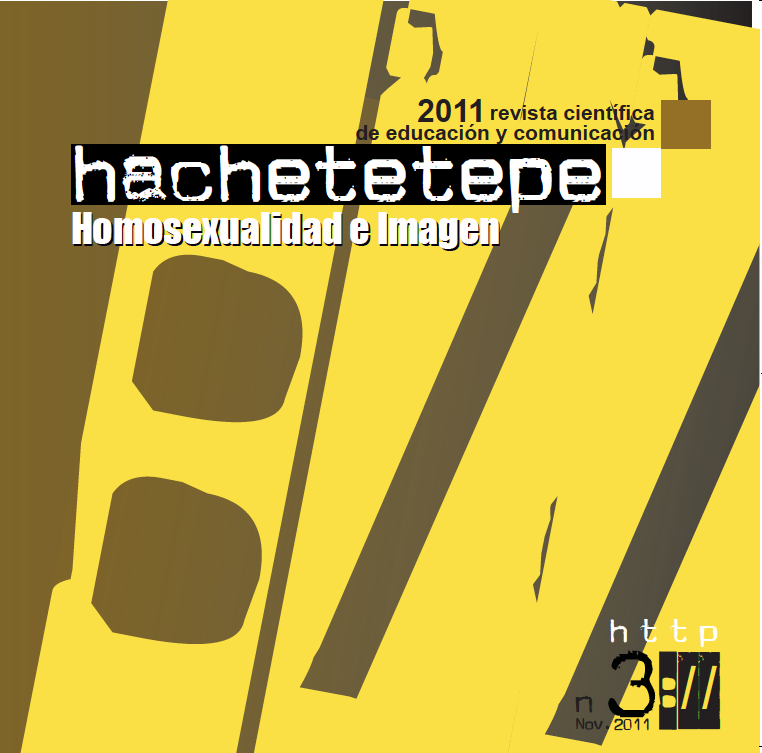The invisibility of homosexuality in a third world country in developing countries: Costa Rica

Info
Abstract
The aim of this paper is to state out some ideas about how the Costa Rican society perceives homosexuality. This perception is mostly strengthened and supported by political, social and cultural paradigms. The essay also stresses how the homosexual is invisibilized as well as stereotyped and typified by his/her gay orientation, and not by the fact that he/she is a human being. Besides this, the article also shows the fight homosexual minority groups have struggled during the last decades in order to reach social, political and family rights putting aside all kind of discrimination and xenophobia and looking an integral well-being for homosexuals.
Keywords
Downloads
How to Cite
License

This work is licensed under a Creative Commons Attribution-NonCommercial-NoDerivatives 4.0 International License.
Those authors who have published with this journal, accept the following terms:
- They will retain their copyright and guarantee the journal the right to first publication of their work, which will simultaneously be subject to the Creative Commons Attribution License . They may be copied, used, disseminated, transmitted and publicly displayed, provided that the authorship, url, and magazine are cited, and are not used for commercial purposes. No derivative works are allowed.
- They may adopt other non-exclusive license agreements for the distribution of the published version of the work (e.g., deposit it in an institutional telematic archive or publish it in a monographic volume) provided that the initial publication in this journal is indicated.
- Disseminate your work through the Internet (e.g., in institutional telematic archives or on your website) once the manuscript is accepted, which may lead to interesting exchanges and increased citations of the published work. (See The effect of open access).
Hachetetepé. Scientific journal of education and communication does not charge a fee for the submission of manuscripts or for the publication of its articles.
References
Arguedas, C. (2010). .”Juzgado dio custodia de niño a travesti”, La Nación.com, 29 de septiembre de 2004. (Consultado el 4 de julio de 2010).
Bauer, M. (1994). Am I blue: Coming out from the silence?. New York: Harper Collins.
Cornejo, G. ( 2010). “Una loca que escribe desde la vergüenza”. En: El Grito, 3.
Durkeim, E. (1998). De la División du Travial Social. En Selected Writings. Cambridge: University Press.
Editorial (2010). “TSE respetará “identidad sexual” en fotos de cédulas”, La Nación.com, 6 de julio de 2010. (Consultado el 7 de julio de 2010).
Enciclopedia de Costa Rica (2002). San José: Editorial Océano.
González, R. (2010). “Nuevo sexo: ¿nueva identidad”, Teletica, 30 de junio de 2009. (Consultado el 7 de julio de 2010).
Gobierno de Costa Rica, Asamblea Constituyente. Acta 2, 20 de junio de 1949 2 L.M.C. t. II. p. 370. San José, Costa Rica.
Platón (2003). Diálogos. Obra completa en 9 volúmenes. Volumen IV: República. Madrid: Gredos.
Quirós, A. y otros (2010). “Diagnostico sobre los crímenes de odio motivados por la orientación sexual e identidad de género en Costa Rica” Centro por la
Justicia y el Derecho Internacional (CEJIL) Centro de Investigación y Promoción para América Central de Derechos Humanos (CIPAC). San José, Costa Rica.
Ross, A. (2011). “Nunca hemos pedido casarnos por la Iglesia”, La Nación.com, 18 de mayo de 2011. (Consultado el 24 de mayo de 2011).
Ross A. (2011). “Juzgado rechaza matrimonio gay por ‘imposible’”, La Nación.com, 24 de mayo de 2011. (Consultado el 24 de mayo de 2011).
Sala Constitucional (23 de mayo de 2006). «Sentencia 2006-7262». Sistema Costarricense de Información Jurídica. (Consultado el 24 de junio de 2010).
«Sala rechaza solicitud para aceptar matrimonios de homosexuales», La Nación.com, 23 de mayo de 2006. (Consultado el 24 de junio de 2010).

